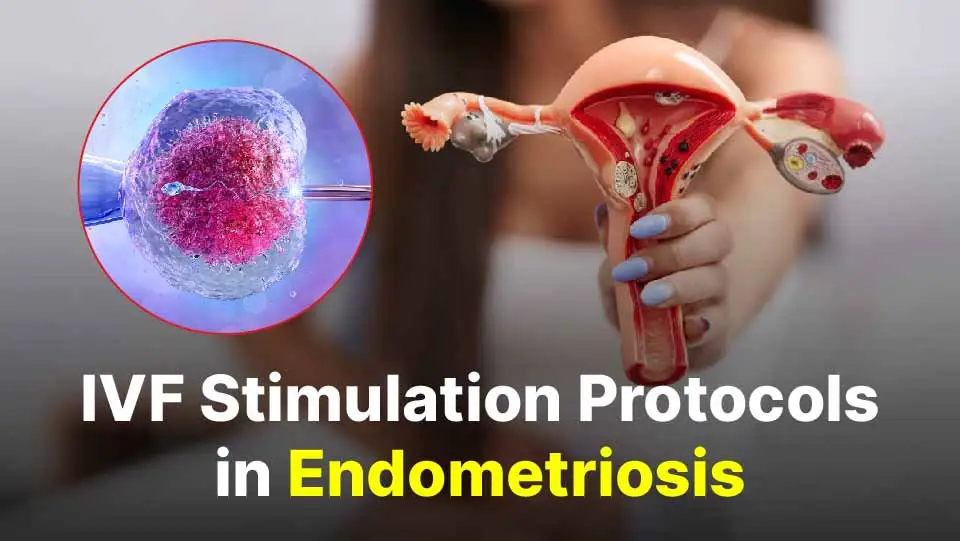In vitro fertilization (IVF) offers a solution to those struggling with infertility, but conditions like endometriosis present challenges. Endometriosis involves uterine-like tissue developing outside the uterus, causing negative symptoms and affecting the reproductive system. Endometriosis may influence IVF outcomes through mechanisms like egg quality and implantation issues. Diagnosing endometriosis will determine treatment to help your fertility goals and reduce IVF failure. Here is more information about IVF, how endometriosis prevents successful IVF cycles, and treatment solutions:
Egg Quality and Ovulation
Female reproductive disorders, like endometriosis, can affect egg quality and ovulation. Fertilized eggs may damage endometrial implants, lowering the chances of development into healthy embryos. This could mean they are less likely to implant successfully following a transfer during an IVF cycle. Endometrial lesions can also interrupt your ovulation, stopping eggs from being released altogether. These barriers diminish the probability of conception.
Embryo Implantation Challenges
Endometriosis inflames uterine tissue, impairing the uterine lining where embryos implant. Poor implantation rates may increase the chances of IVF failure, the primary objective of embryo transfer. Lesions on and around the uterus’ outside structure alter its shape and function, reducing receptivity to implanted embryos. Inflammatory cytokines produced by lesions can disrupt communication between the embryo and uterine lining. These disrupted mechanisms account for poor implantation rates among IVF patients with endometriosis.
IVF Success Rates
Trying IVF on women who struggle with endometriosis may reveal diminished outcomes for diagnosed patients. Fertilization, implantation, and live birth rates may show varying degrees of reduction in patients with this condition in all phases of assisted reproduction. Identifying the points of failure through each IVF cycle phase can inform protocols to improve future treatment attempts. Your goals can influence the prognosis when you evaluate your reproductive history.
Available Treatment Options
Detection of endometriosis through surgical laparoscopy offers the prospect of improving fertility through excision procedures. Exciting lesions from the ovaries may restore their egg capacity. Removing lesions from uterine surfaces can aid your embryo implantation by increasing uterine function and receptivity. Post-surgery IVF performed after the healing may benefit from these improvements to your reproductive environment. Discussing surgical treatment with a fertility specialist familiar with this disorder can help prepare patients for an IVF attempt.
Symptoms During IVF
Managing symptoms like cramping during IVF cycles can help keep the patient more comfortable. Medications offer relief from physical discomfort without diminishing fertility goals. Nutritional supplements may reduce some inflammatory markers linked to this disorder. Acupuncture and relaxation techniques can provide additional paths to pain management. Patients should explore all available options to ease symptoms during their treatment journey.
Support for IVF Patients
Fertility clinics offer resources to bolster IVF success efforts. Reproductive endocrinologists evaluate your reproductive history and recommend personalized protocols. Genetic testing identifies chromosomal abnormalities that affect your fertilization, development, and implantation. Reproductive immune testing screens cytokines and cells that may alter maternal-fetal interactions. Incubators nurture embryos until transfer. Infertility support groups provide connection and counseling services.
Endometriosis Detection Solutions
For some infertility patients, surgical procedures offer a path to endometriosis detection unavailable through medical imaging alone. Laparoscopy grants reproductive specialists visual access to the pelvic cavity to identify endometrial tissue on or around reproductive organs. Understanding the potential for reproductive disorders to influence IVF outcomes allows patients and physicians to address obstacles to fertility success. Those pursuing parenthood through assisted reproductive technology can find value in detection methods, monitoring tests, surgical options, and symptom management.
Reduce IVF Failure Today
Endometriosis does not have to stop your family planning goals. Testing diagnoses infertility issues like endometriosis and helps improve IVF success. Partner with reproductive endocrinologists to receive testing solutions and IVF failure analysis to help your fertility journey.
